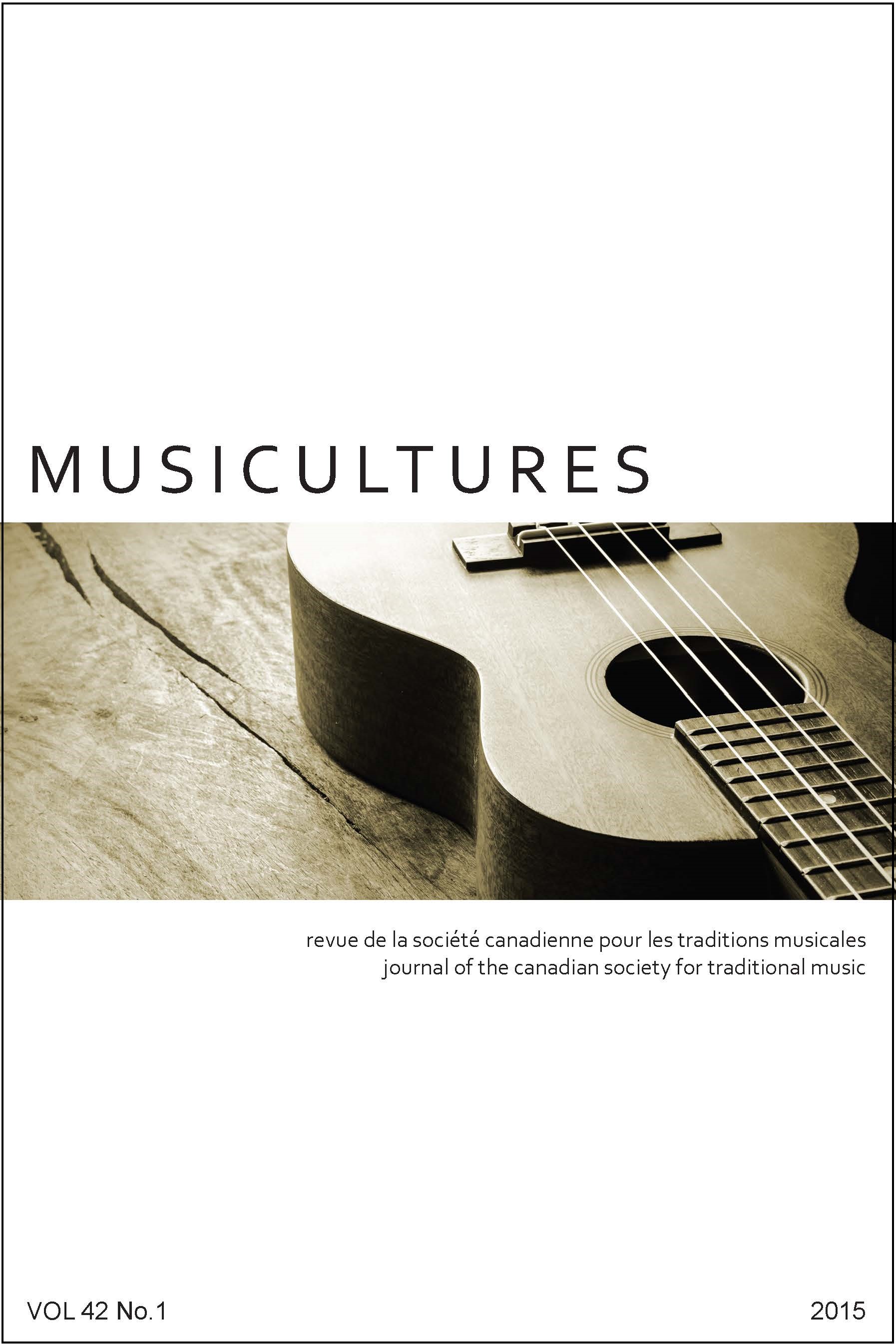Abstract
During the 1990s, Atlantic Canada witnessed a brief period of attention from the Canadian popular music industry. In conjunction with an international resurgence of “Celtic” culture, the Celtic-oriented traditional music of the Atlantic region was viewed as a vehicle for potentially increased record sales in a struggling industry. This article examines the marketing and identity constructs that were used to popularize this traditional and folk-based music. Using Keith Negus’ notions of deterritorialization and reterritorialization, the article examines the careers and music of The Rankin Family and Great Big Sea, and examines the ways in which their music, videos, image and personae utilized both of these strategies to achieve a national audience.- The author retains copyright over the work.
- The author grants the journal owner (The Canadian Society for Traditional Music / La Société canadienne pour les traditions musicales) an exclusive license to publish the work.
- The author may post a pre-print or post-print version of the work (see definitions below) on a personal website for up to twelve months after the work is published in MUSICultures. After twelve months, the pre-print version must be replaced with the published version.
- The author may deposit the published PDF of the work in a non-commercial online repository twelve months after the work is published in MUSICultures, or any time thereafter.
- Any such deposit must include a link to the work on the MUSICultures website, e.g., https://journals.lib.unb.ca/index.php/MC/article/view/19996
A pre-print is a work-in-progress—a contribution not yet accepted, or perhaps even submitted, to MUSICultures.
A post-print is the version of a contribution after peer review and acceptance by MUSICultures, with revisions completed.
The published version is the PDF file of a contribution as it appears in MUSICultures.
Please note that academia.edu and ResearchGate.com are both for-profit repositories; authors may not deposit the published PDF of the work in these repositories until after the journal’s embargo period.
For permission to reprint or translate material from MUSICultures, please contact Heather Sparling, General Editor of MUSICultures (heather_sparling@cbu.ca).

